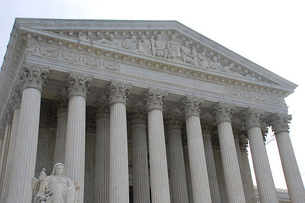 Credit: Web Ranking Images. Social networks are transforming how relationships begin and end. One in five relationships now starts on social networks. But social networks also contribute to breakups and divorce. Instead of catching a whiff of another woman’s perfume on your husband’s shirt, you might instead find an X-rated photo that your husband accidentally tweeted to a woman in public mode rather than private mode. Or—as happened in a Connecticut case—your husband and his girlfriend might be sending each other Facebook gifts such as “Love Birds” and posting about the need for discretion. (Husband: “[n]o more Facebook. . . to public for me.” Girlfriend: “LOL o.k. under the radar . . . flying low. . . ”) Social network information can be a smoking gun when people divorce. In an American Academy of Matrimonial Lawyers poll, 81 percent of divorce attorneys mentioned an increase in the use of social networking evidence over the past five years. Most of that evidence was found on Facebook (66 percent) or Myspace (15 percent). Posts or photos indicating that one spouse cheated or has dangerous habits can help the other spouse receive more money in the split or gain sole custody of the kids. Divorce lawyer Linda Lea M. Viken recounted a custody battle where a father posted on his Facebook page that he was “single with no children looking for a fun time.” Divorce lawyer Kenneth Altshuler said, “Facebook has made it very easy to show lack of credibility and that is what can win a case. Once you catch them in one lie, nothing else they say is credible to the judge.” The only way to guarantee that your posts won’t come back to haunt you in a custody case would be never to have had a social network page or to act like a Stepford parent and post only positive and glowing things about your every moment with your child. (Perhaps even doing that would backfire since it could be used to show that you are too enmeshed in your child’s life and won’t give your child enough space to grow.) Erasing a page you’ve previously created or deleting your social network presence entirely won’t help. Projects such as the Wayback Machine have probably captured screenshots of that page in its earlier incarnation. Since parenthood is rewarding, demanding, and frustrating all at the same time, people may unthinkingly blurt out their frustrations in social media. What if you once tweeted that you didn’t want children? Should that statement be used to terminate your parental rights? In In re T.T., a Texas case, the court allowed such a statement from a dad’s Myspace profile to be used against him. What if you failed to mention kids on your Match.com profile? Would that show you were a bad mom? How about if you said, “I love my motorcycle” or “I love my iMac” but didn’t mention your children? Would that indicate that your kids played second fiddle to your possessions? My personal view is that any social network statements about the child should be kept out of the case unless they indicate that the parent is likely to harm the child emotionally or physically. And a lack of statements about the child (or even a statement that one doesn’t have children) shouldn’t be used as a way to show parental unfitness.
2 Comments
 Murder. Mayhem. Betrayal. Sounds like your typical thriller, right? But it’s just an average day on a social network. As both cops and criminals turn to social networks to do their jobs, the real life incidents provide potential plotlines for thriller writers. Already, writers Harlan Coben (Caught), Jeffrey Deaver (The Broken Window), and Scott Turow (Innocent) have woven internet issues into their thrillers. In my latest non-fiction book, I Know Who You Are and I Saw What You Did: Social Networks and the Death of Privacy, I talk about scores of real criminal cases involving social networks that could provide inspiration for thriller writers. Facebook posts can provide the motivation for a murder—such as the 34-year-old British man who hacked his estranged wife to death after she changed her Facebook status to “single.” Posts can also provide ways to uncover crimes. The IRS searches social network sites for evidence of taxable transactions and the whereabouts of tax evaders, while Homeland Security searches certain people’s emails for 350 red flag terms, including the phrase “social media” itself. Posts can be used to intimidate witnesses—such as when a killer’s girlfriend posted, JUST REMEMBER SNITCHES GET STITCHES!! Virtually every aspect of crime and punishment can include a social network twist.  U.S. Supreme Court. Credit: Mike Renlund. As technology makes surveillance easier and cheaper, courts are grappling with how to apply the Fourth Amendment in the digital age. Prior to beepers, GPS, people checking in on Foursquare, and social networks, law enforcement monitoring of suspected offenders was limited by the constraints of manpower, budget and the risk that the officers following suspects might themselves be seen. But now an increasing amount of information about people’s whereabouts, activities, purchases and intentions can be gleaned digitally, without an officer ever leaving the station. The U.S. Supreme Court’s decision this month in United States v. Jones provides little guidance about which activities might be considered searches, which require warrants, and which voluntary disclosures to third parties might waive Fourth Amendment rights. A furious battle is taking place in Congress about the future of the Internet. Lawmakers are trying to figure out what rules should govern the Wild West of the Web—with issues ranging from cyberbullying to police access to private social network pages. Like many aspects of our lives, though, the battle has now gone viral, with Wikipedia shutting down most of its English site for 24 hours in protest against the proposed Stop Online Piracy Act (SOPA).
The reach of SOPA is broad and the penalties drastic. Let’s say I post a home video of my family on YouTube and there is a Velvet Elvis on the living room wall behind me. Under SOPA, since the Elvis image is copyrighted, the U.S. Attorney General could step in and shut down all of YouTube because of my transgression. The AG could force all search engines to pretend YouTube never existed and not link to it. And I might even go to prison for five years, if I’ve shot ten home videos in the room in front of the Velvet Elvis or if, in my videos, my CD player was playing my favorite songs.  The Sixth Amendment of the U.S. Constitution provides for the right to a fair trial. Jurors are supposed to decide a case based on what they hear in the courtroom, not what they read in the news media. They’re not allowed to talk about the case with others so they don’t base their decision on the influence of a friend or relative, rather than their own judgment. They can’t visit the scene of the crime on their own or conduct their own investigations. Before Facebook, Twitter and Google, it was pretty easy to keep jurors in line. If a case garnered attention in the local press, a judge could order a change of venue so that the case was heard in another town. If the court was worried about outside influences, the jurors could be sequestered. But now with a quick search on a smartphone—or a peek at a defendant’s Facebook page—jurors are routinely breaching the right to a fair trial, and courts, lawyers, and legislatures are trying to figure out what to do about it. Without a doubt, social networks like Facebook have enhanced the Constitutionally-protected freedom of association since they allows groups to form. But social networks have opened the door for people’s associations to be used against them. Read my post about this at the National Constitution Center's blog.
Facebook has become as big and powerful as a country – and it's time its citizens got a constitution. Read an excerpt from my new book about this at Salon.com.
Should cyberharassment be protected by the First Amendment? Read my blog about this topic at Techdirt.com.
Image Credit: MARGARET SCOTT / newsart.com
This op-ed appeared in the Philadelphia Inquirer on January 8, 2012. In Philadelphia 225 years ago, the U.S. Constitution was drafted. Now Pennsylvania is essentially drafting a second Constitution as courts across the state determine what rules should govern social networks. Pennsylvania leads the nation in legal disputes involving social networks and the Web. These cases include a teacher who was suspended because of a Facebook post about her frustrations with her students, a law student who was criticized for running a website where men fantasized about raping particular female students, and a Pittsburgh Pirates mascot who was fired for a Facebook post disagreeing with his employers' decision to extend certain managers' contracts. The U.S. Constitution protects the rights of free speech and privacy. But social networks pose challenges to those rights. Straight-A students have been expelled from school for criticizing their teachers on Myspace. Thirty-five percent of companies turn down job seekers based on posts from social networks, especially photos that show the person holding a glass of wine or beer. HOLIDAY TRAVEL WARNING: FOUR COMMON PRIVACY GAFFES THAT ARE WORSE THAN COAL IN YOUR STOCKING12/23/2011 Sleigh bells ring…and people get lax about computer privacy. Your comfort and joy might be headed south if you don’t think about what you unwittingly reveal during the holidays:
Is Your Seatmate Stealing Business Secrets? As you travel for the holidays, you’re probably focused on flight delays, the unfinished work you left behind, or how to avoid certain relatives. You may be thrilled about the chance to see old friends, get a change of climate, and stop thinking about the work you left behind. You probably aren’t thinking about your seatmate stealing business ideas or information by peeking at your screen. Unless you make an effort to protect that information when you nod off, your on-screen information could be fair game to that nosey passenger sitting next to you or across the aisle. |
Lori AndrewsLori is a law professor and the author of I KNOW WHO YOU ARE AND I SAW WHAT YOU DID: SOCIAL NETWORKS AND THE DEATH OF PRIVACY. Sign up for Lori's newsletter.
Archives
April 2015
Categories
All
|

 RSS Feed
RSS Feed